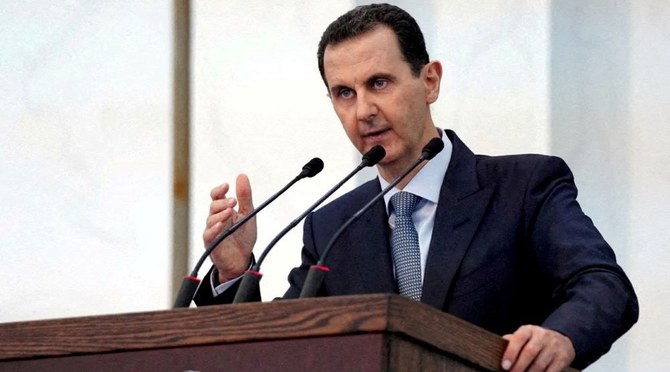Dr. Dania Koleilat Khatib
The European Parliament this month issued a joint motion for a resolution on Lebanon. The statement stressed “that conditions are not met for the voluntary, dignified return of refugees in conflict-prone areas in Syria.” At the same time, the motion acknowledged that the situation in Lebanon is dire. What we can conclude from the statement is that the EU is adopting a wait-and-see attitude, with no solution on the horizon. However, this does not work because the situation is not sustainable.
The status quo in Syria is that the country is de facto divided into three areas. In the northeast, the main force is the Syrian Democratic Forces under American protection. In the northwest, Hayat Tahrir Al-Sham rules under Turkish influence. And the rest of the country is with the regime, either under Iranian or Russian influence. The Ukraine war has added a layer of complication to the conflict and increased the stagnation. The West now does not want to start a conversation with Russia. And since the Wagner boss Yevgeny Prigozhin’s mutiny, Western leaders are under the impression that Russia is severely weakened, ensuring they will not want to engage in a conversation such as the one on Syria, in which Moscow will be given legitimacy and importance.
Regarding Bashar Assad, although the international community has the backing of UN Security Council Resolution 2254, no one has the stamina or is willing to use their political or military capital to put it into effect. Hence, Europe abides by the resolution but does nothing to enforce it. On Syria, the EU faces a dilemma. On the one hand, it realizes that removing Assad would be a difficult task, so it has given up on this project. On the other hand, Brussels knows that there will be no stability while Assad is in power. Assad cannot be trusted with any aid. Any funds that go into Syria will go toward solidifying the regime and its iron grip over the people – they will not be used to improve the situation for ordinary Syrians.
To solve this problem, the EU believes that maintaining the status quo is the best option. The thinking is that the refugees will stay where they are and everybody can wait and see. Russia is getting weakened, the economic situation in Syria is deteriorating and, at some point in time, Assad will have to make concessions. However, this is mainly driven by wishful thinking rather than realism.
The Europeans do not realize that the refugees’ situation is not sustainable. Turkiye is already sending refugees back to Syria. While people thought that President Recep Tayyip Erdogan’s promise to repatriate refugees was an election stunt, it has turned out to be a real policy. While Erdogan announced last week that 1 million refugees had “voluntarily” returned, various media accounts show that many of those returns may have been involuntary. Regardless of the dynamics behind this campaign, one thing is very clear: The refugee issue is not sustainable.
The same applies to Lebanon. It is true that the refugees are not the cause of the crisis the Lebanese are witnessing, with the disaster instead being self-inflicted. However, the aversion toward refugees has reached the point where it cannot be contained anymore. It needs to be addressed. The EU can no longer turn its back on the problem and think that it can go away. It needs to seriously think about a solution, otherwise a clash is bound to happen and that will result in a new wave of refugees reaching European shores. Europe definitely does not need that. However, dealing with Assad or recognizing him is not a solution. If Europe accepts Assad, he will use this as bait to extort funds from the EU; funds that definitely will not go toward improving the lives of the people of Syria, but rather to consolidate his regime and to extend his influence.
So far, those who have normalized with him have got nothing in return. Captagon, the deadly drug, is still flowing to Arab states and the wider world. This means Europe needs a dose of realism in terms of dealing with the Syrian conflict. The European policy toward Syria is living on borrowed time – sooner or later, the Europeans will need to act. They need to have a real policy and not a tactic of appeasement. The Europeans do not want to talk to the Russians because of the Ukraine war. However, the Europeans should engage with their allies, or at least those with whom they can talk effectively in order to reach a solution. They should encourage the Saudi-Iran rapprochement and push it toward an operational agreement on Syria that will allow the return of refugees, while also putting in place a mechanism to monitor and ensure their safe and dignified return.
Also, Europe should engage with Turkiye and make sure that the Erdogan government, which includes the Nationalist Movement Party, makes a concession and accepts a reconciliation with the northeast. In this respect, Turkiye would need a perk, as it perceives that it can use coercive measures to keep the Kurds of that area under its thumb. The 2016 agreement between the EU and Turkiye pointed to visa-free entry for Turkish nationals to the Schengen area. However, this has not come about. According to the Europeans, Turkiye failed to abide by certain criteria regarding border controls and human rights. Maybe it is time for the EU to give Turkiye this incentive to convince Erdogan and his government, especially his ultranationalist allies, of the benefits of normalizing with Syria’s northeast. However, the starting point to any practical policy the EU might adopt is an awareness that the current situation of refugees in neighboring countries is not sustainable.
Arab News







